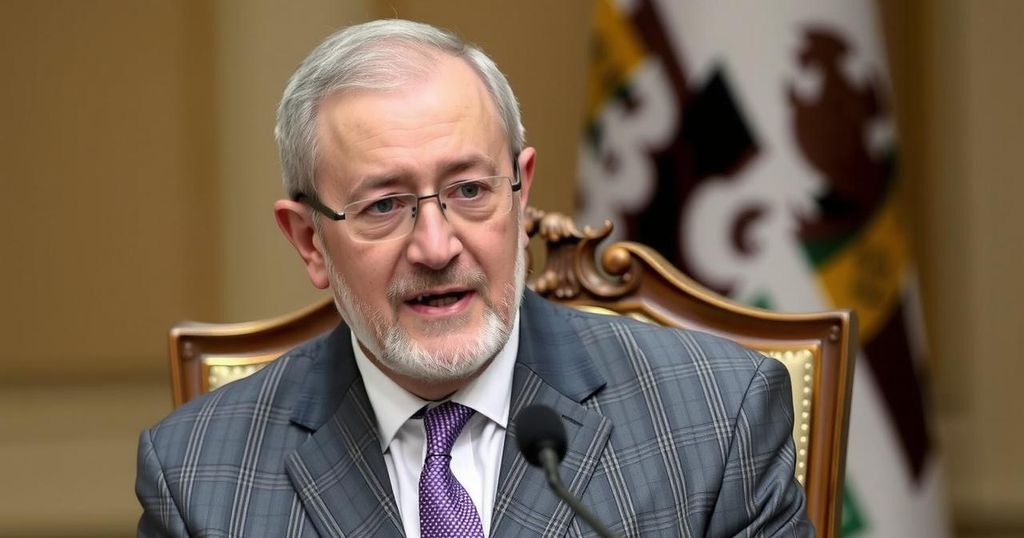Syria’s Political Future: Potential for Elections in Four Years

Ahmad al-Sharaa states that it may take four years for elections and up to three years to draft a new constitution in Syria, highlighting the need for dialogue among political factions and infrastructure reconstruction. HTS plans to dissolve following a national dialogue summit, while external military actions continue to destabilize the region.
Ahmad al-Sharaa, the de facto leader of Hayat Tahrir al-Sham (HTS), has indicated that it may take up to four years to conduct elections in Syria. He highlighted that formulating a new constitution could require as much as three years and emphasized the need for a comprehensive population census prior to any valid elections. This statement was made during an interview with Al-Arabiya, in the context of the aftermath of a recent insurgency that succeeded in ousting President Bashar al-Assad, thus altering the country’s political landscape significantly.
Al-Sharaa articulated the necessity for various political factions within Syria to engage in productive dialogue in light of decades of authoritarian governance under the al-Assad regime. He underscored the damage inflicted upon Syria’s infrastructure due to ongoing conflicts as a hindrance to the election process. With a firm belief that the current opportunity for political transformation is rare, he expressed a desire for the constitution to endure long-term. Al-Sharaa intends to preside as Syria’s de facto leader until March 1, when a national dialogue is expected to convene to establish a transitional government.
Significantly, HTS plans to dissolve following these discussions, marking the end of its dominance as the primary rebel faction in Syria. Meanwhile, Israel has escalated its military operations, reportedly targeting military installations belonging to al-Assad’s forces, resulting in civilian casualties, according to a report from the Syrian Observatory for Human Rights.
Al-Sharaa noted that he aspires to maintain “strategic relations” with Russia, a principal ally in supporting the Assad regime, while expressing hopes for future negotiations with the Kurdish-led Syrian Democratic Forces. Tensions, however, persist between Turkish-backed Syrian rebels and the SDF, indicating a complex and multifaceted scenario as Syria navigates its transitional phase amidst external military pressures.
Syria has been embroiled in civil conflict since 2011 when protests against President Bashar al-Assad escalated into a full-blown war. This turbulent period witnessed the rise of various rebel factions, including Hayat Tahrir al-Sham (HTS), which emerged as a significant force. Recent developments indicate that HTS has played a crucial role in recent political changes, aiming to initiate a national dialogue amongst Syria’s disparate factions. With infrastructure in ruins and decades of oppressive governance, the task of establishing a stable political system with inclusive elections poses a considerable challenge.
In conclusion, the process of achieving elections in Syria will be an arduous task that may demand years of preparation, influenced by ongoing reconstruction and political negotiations. As Syrian leaders aim for an inclusive political future, the planned dialogue reflects a pivotal moment that could redefine Syria’s governance after years of conflict. The challenges posed by foreign interventions and internal divisions remain critical as Syria strives to rebuild its socio-political landscape.
Original Source: www.euronews.com








